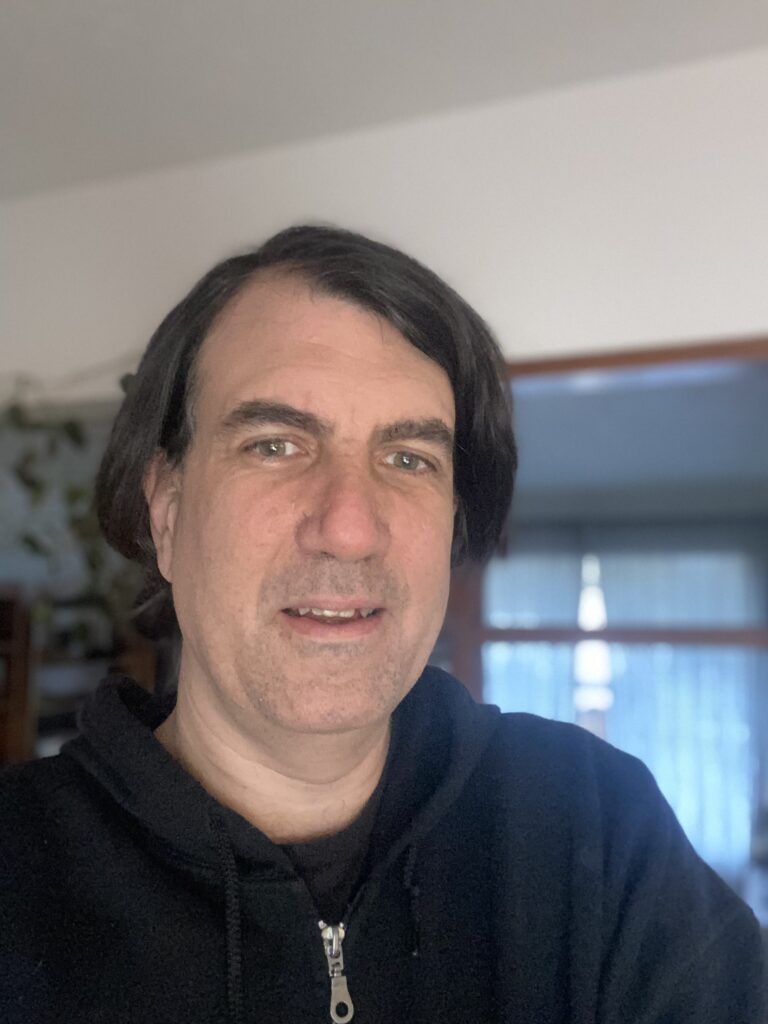
Justice graduated from Arkansas Tech University in 2004 with a BFA in Creative Writing with an emphasis on poetry. Outside of Neighborhood Partnerships, Justice spends much of their free time reading, walking their labrador Hilde, drawing and painting, exploring the natural landscapes of the Pacific Northwest, and whipping up delicious (mostly) vegan meals for their family.
For starters, tell us a little about yourself.
I feel like in a different age or with a different socio-economic background that I would be some kind of hermit-philosopher? My father is a Methodist minister, and my mother is a librarian, so you might say I have a tendency towards cataloging worldviews. How did this land me where I am now?
My ability to relate to and sympathize with many perspectives is part of what allowed me to have long-term success as a canvasser, which is rare in that industry. Most people do not even last a week, much less a decade. I carry that ability with me into my more “mainstream” fundraising and messaging work, always thinking about what fact or story is going to connect with different audiences and motivate them to act.
Lots of people care about better outcomes when it comes to housing and economic justice, but they do not always know what to do about it. That is what I see my role as, helping them see how supporting or getting involved with Neighborhood Partnerships helps forward that march towards justice.
What does opportunity mean to you?
One of the biggest things that people often miss when it comes to opportunity is the mindset component. You can have the access and ability to pursue a dream like owning a home or starting a business, but if you do not believe in your own ability to succeed, then it will still feel like those doors are closed. You will just think those pathways are for someone else.
I saw this showing up with people experiencing homelessness when I worked at Sisters of the Road. It is rarely the case that people do not want to find the stability of a steady income and permanent shelter, but after months or years on the street they often stop believing in the possibility of it happening, even when on-ramps exist.
What difference can financial security make for individuals in communities?
Financial security gives people the ability to make choices, including thinking about how they can best participate in building a healthy, sustainable community. I am sure that I am not alone in the experience of staying at jobs or in living situations that no longer are working well for me, because I cannot afford to just leave them and take the time necessary to figure out my next move. When you are focused on survival and meeting your basic needs, larger questions of civic responsibility and building a better society can also end up constantly being pushed onto the back burner. Creating a scarcity mindset is also one of the tricks of power structures to combat solidarity and community-building.
What’s your favorite quote?
I love this quote from Angela Davis, “You have to act as if it were possible to radically transform the world. And you have to do it all the time.”
We can often feel like we are stuck in oppressive systems that seem completely intractable, and no matter how hard we collectively push against them, they continually refuse to budge. Sometimes though, we wake up and something radically changes the context that we are operating in, and then the possibility of big, systemic change suddenly manifests itself. We must always prepare and anticipate that these moments of possibility are just around the corner, especially when it seems like there is no chance that they are. Otherwise, we will miss the opportunity to make change when an inflection point makes things fluid enough for the change that we want to see to become real.
